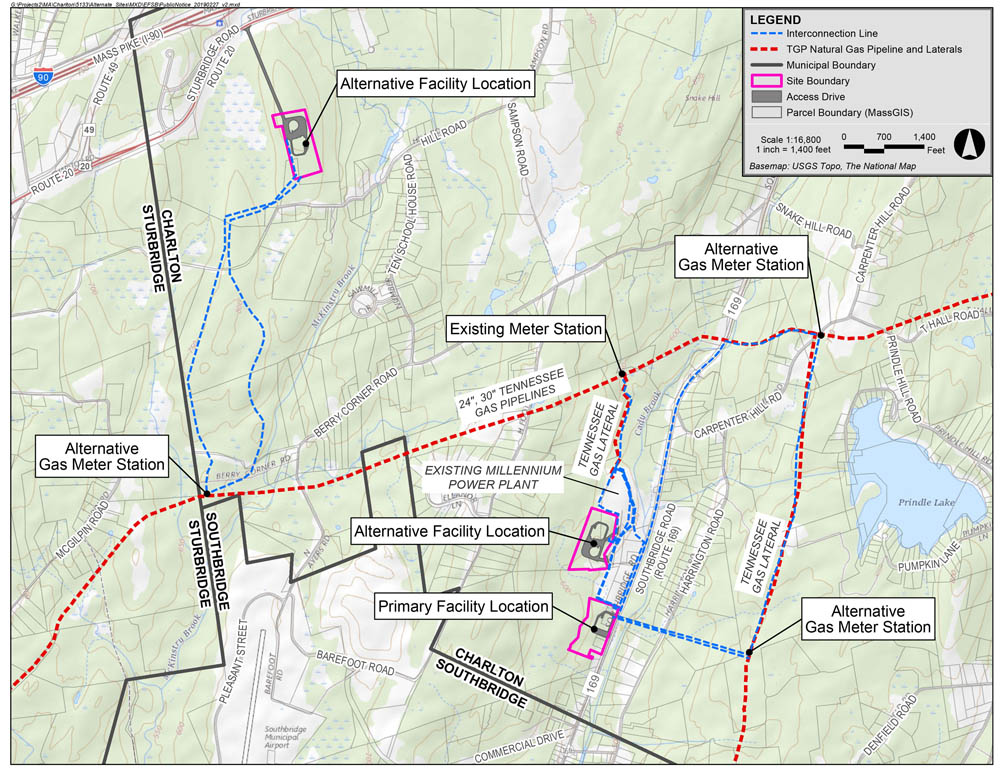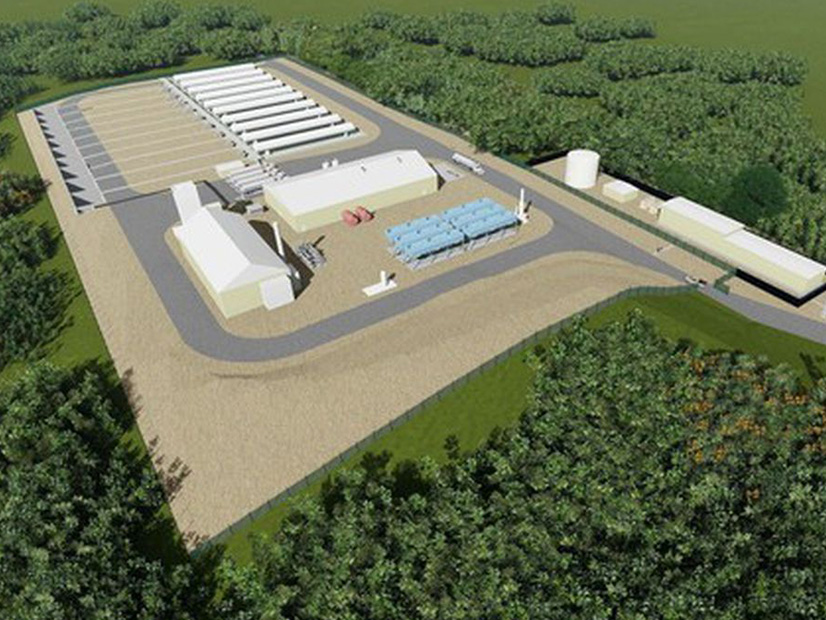Clean energy advocates are pushing the Massachusetts Energy Facilities Siting Board (EFSB) to reconsider its tentative approval of a liquefied natural gas (LNG) facility within one mile of a low-income, state-designated environmental justice community.
“The siting board declares this facility an energy bridge during the state’s transition away from a fossil fuel-based economy. But this project is the fossil fuel-based economy,” Cathy Kristofferson, secretary and treasurer for the Pipeline Awareness Network for the Northeast, said during an EFSB meeting on Oct. 6.
The proposed Northeast Energy Center (EFSB 18-04/D.P.U. 18-96) would liquefy and store pipeline natural gas for loading onto tanker trucks to serve National Grid customers with some capacity marketed to other gas distribution companies in the state.
The project would be located along Route 169 or Route 20 in Charlton, a town already overburdened with methane emissions from Talen Energy’s Millennium natural gas combined-cycle power plant and a landfill operated by Casella Waste Systems that was shut down for contaminating residential water wells, resident Maureen Doyle said.
The EFSB heard public comments on the $100 million facility proposed by Liberty Energy Trust, an infrastructure and development firm, but ran out of time for deliberation and a final decision.

On Sept. 20, the EFSB tentatively approved the project’s location at the Route 169 site, adjacent to the Millennium plant. The board acknowledged the site’s location within an environmental justice community but stated, “the project did not exceed the Environmental Notification Form (ENF) thresholds for air, solid and hazardous waste, or wastewater and sewage sludge treatment and disposal.”
Projects such as the LNG facility are required to fill out an ENF. The form initiates the process for the facility to receive approval from the Massachusetts Environmental Policy Act Office to ensure the proposal aligns with state laws, including the Executive Office of Energy and Environmental Affairs’ Environmental Justice Policy.
The local production and distribution of LNG “offers greater reliability and less environmental impact than more distant LNG sources that may be available,” Andre Gibeau, an attorney for the EFSB, said during the meeting. The proposed project is also “centrally located with respect to existing LNG storage facilities in the commonwealth,” he said.
According to a 2019 report by The Oxford Institute for Energy Studies, the natural gas combusted to chill LNG to minus 162 degrees C equals 11 to 13% of the gas produced at the wellhead, “which means that LNG has significantly higher emissions than a typical pipeline gas value chain.”
The proposed facility would include a pipeline extension from the Tennessee Gas Pipeline and be capable of producing 250,000 gallons per day. The plant would be able to store about 1 million gallons of LNG in 10 tanks.
Last week’s meeting occurred as gas prices in Europe and Asia hit record highs. The U.S.’ domestic supply insulates it somewhat from global spikes, but prices in the U.S. have doubled this year, rising to the highest levels since 2008. That could greatly increase heating bills this winter after years of unusually inexpensive fuel.
The EFSB will vote on the LNG facility during its next meeting, which has not yet been scheduled.
The board has yet to replace its environmental justice representative since former representative Shalanda Baker took a position as deputy director for energy justice and secretary’s adviser on equity at the U.S. Department of Energy earlier this year.



